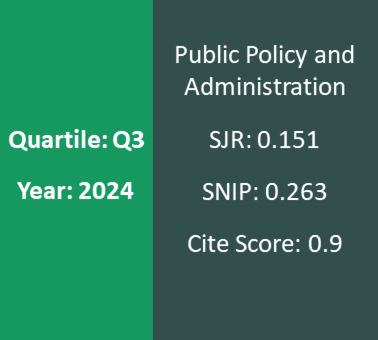Bureaucratic Neutrality Index in Direct Regional Head Elections: Optimism in Developing Professional Bureaucracy in Indonesia
DOI:
https://doi.org/10.5755/j01.ppaa.21.3.31788Keywords:
bureaucracy, merit, neutrality, political officials, professionalAbstract
The study aimed to describe bureaucratic neutrality at regional level and its necessity in direct regional head elections in Indonesia. This research is important in examining whether state civil apparatuses are tempted to enter the practical political arena in regional head elections despite being prohibited by the principle of bureaucratic neutrality. This study employed a descriptive quantitative research method and index analysis techniques. A research population of 12,539 state civil apparatuses (SCAs) in Banyumas, Indonesia was utilized, 400 of which were selected as the research samples. Employing Slovin formula, 95% confidence level and margin of error 4.92% were obtained. This study indicates a satisfactory level of bureaucratic neutrality at 3.18 or 79.59. Indicators of high bureaucratic neutrality level include the absence of SCAs’ support to non-incumbent or incumbent regent candidates on social media as well as the non-response of SCAs to the request of incumbent regent candidates‘ campaign team to perform actions that may benefit incumbent regent candidates. Meanwhile, indicators of low bureaucratic neutrality level include the preservation of neutrality upon discovering other SCA colleagues’ support to non-incumbent or incumbent regent candidates on social media and the preservation of no support to non-incumbent or incumbent regent candidates. These findings present an opportunity to realize a professional merit and bureaucracy system in Indonesia. This study offers recommendations of increased neutrality awareness campaigns among bureaucratic officials and the importance of encouraging SCAs to consistently remind colleagues who may violate the principle of neutrality. Enforcement of legal actions against violators of bureaucratic neutrality is also necessary as a deterrent effect for bureaucratic officials who are not committed to upholding bureaucratic neutrality.





